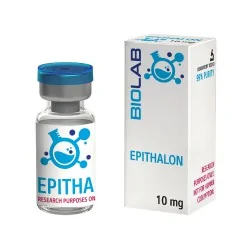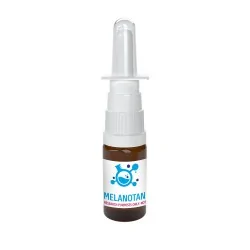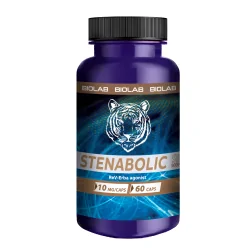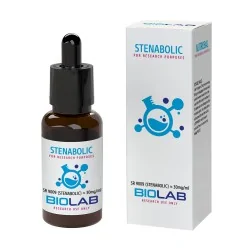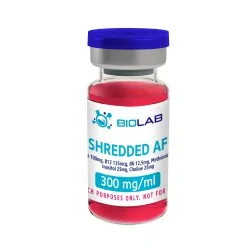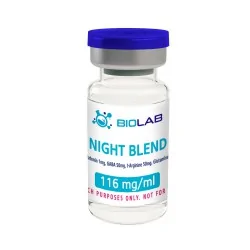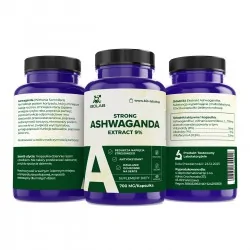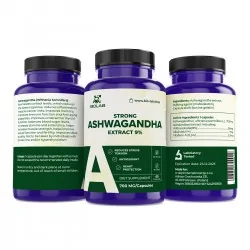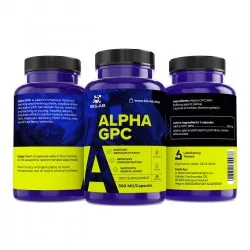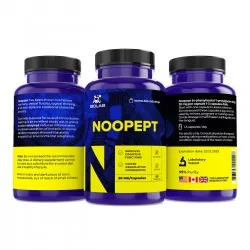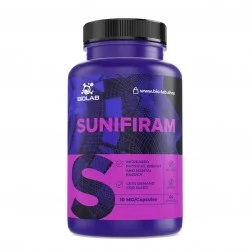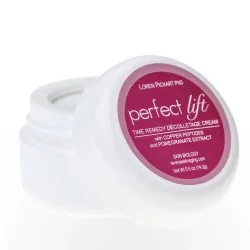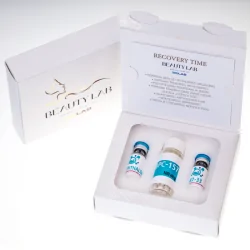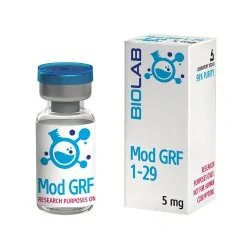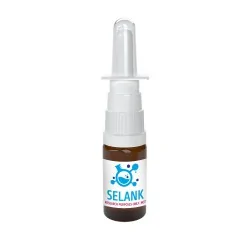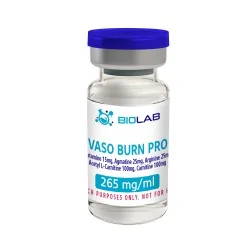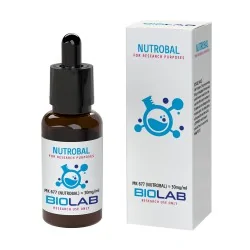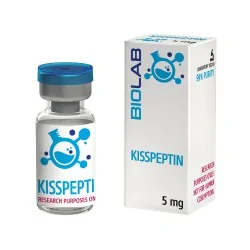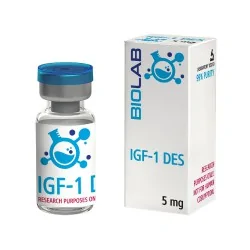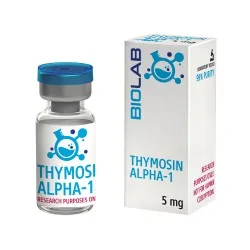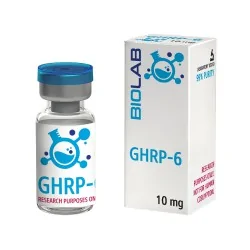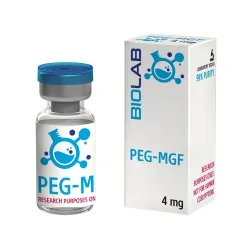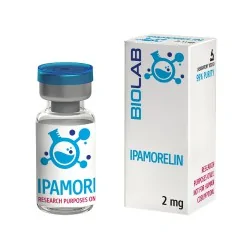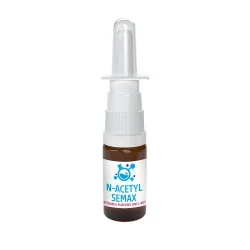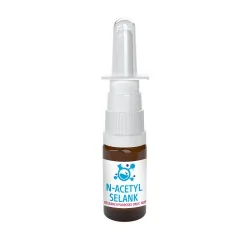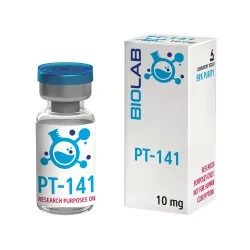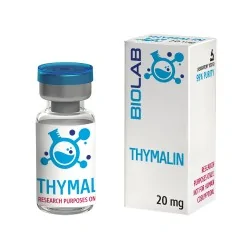-
Peptides
Peptides
back
-
- show all
-
-
Purpose
Return
- Peptides for bodybuilding
- Biomimetic peptides
- Peptides for the gym
- Peptides for bulk
- Natural peptides
- Peptides for joints
- Peptides for reduction
- Peptides for fat burning
- Peptides for weight loss
- Peptides for the muscles
- Peptides for regeneration
- Peptides for libido
- Peptides for injuries
- Peptides for athletes
- Peptides in tablets
- Peptides in injection
- Spray peptides
-
Type
Return
- BPC 157
- hgh
- ghk-cu
- ghrp-6
- ghrp-2
- grf
- tb-500
- oxytocin
- semax
- melanotan
- pt-141
- epithalon
- selank
- thymosin
- cjc-1295
- ipamorelin
- peg-mgf
- adamax
- kisspeptin
- dsip
- sermorelin
- n-acetyl
- arg-bpc
- thymalin
- 5-amino 1MQ
- alarelin
- mots-c
- igf-1 Lr3
- IGF DES
- GHRP2
- Fragment
- CJC DAC
- Adamax
- Cortagen
- Snap 8
- B7-33
- Melanotan 2
- Selank
- Thymosin alpha 1
- Mots
- VIP
- LL-37
- Livagen
- P-21
- KPV
- Ara 290
- L21
- Acth 1-39
- matrixyl
- TRH
- Larazotide acetate
- glp-1
- GC-1 SOBETIROME
- TB-4 FRAG+BPC-157 ARG
- AOD-9604
- cardiogen
- prostamax
- pancragen
- bronchogen
- retatrutide
- Thrombin peptide Tp508
- SLU-PP-332
- LIPOTROPIN
- THYMOGEN ALPHA-1
- Nutrobal
-
Purpose
Return
-
Peptide calculator
-
- show all
-
- Sarms Sarms back
-
- show all
-
Produkty
- Amino acids Amino acids back
-
- show all
-
Aminokwasy
-
- show all
-
Produkty
- Supplements Supplements back
-
- show all
-
Supplements
-
Purpose
Return
- Weight Loss Supplements
- Supplements for memory and concentration
- Energy supplements
- Hair and nail supplements
- Cholesterol supplements
- Supplements for the complexion and skin
- Sleep supplements
- Gym supplements
- Supplements for reduction and sculpture
- Eye and vision supplements
- Supplements for stress and nerves
- Supplements for regeneration and fatigue
- Strength and fitness supplements
- Joint supplements
- Liver supplements
- Acne Supplements
- Kidney supplements
- Knee supplements
- High blood pressure supplements
- Cellulite supplements
- Bone supplements
- Tendon supplements
- Supplements for potency and libido
- Dopamine supplements
- Serotonin supplements
-
Type
Return
- Ashwagandha
- Omega 3
- Vitamin D3
- Magnesium citrate
- N-Acetylcysteine
- Biotin
- Collagen
- L-Theanine
- 5-Hydroxytryptophan
- Forskolin
- Resveratrol
- Coenzyme Q10
- PQQ
- Rhodiola rosea
- Canna
- Kava Kava
- TUDCA
- Cholinolytics
- berberys
- inozytol
- sodium butyrate
- lactoferrin
- selenium
- cordyceps
- Quercetin
- lions mane
- glycine
- curcumin
- alpha lipoic acid
- shilajt
- apigenin
- dim
- chasteberry
- baikal thyroid
- reishi
- pycnogenol
- phosphatidylserine
- chromium picolinate
- astragalus
- nad+
- tulsi
- egcg
- magnesium citrate
- nalt
- pana ginseng
- synephrine
- zinc picolinate
- cherry tart
- magnesium taurate
- magnesium l-threonate
- adaptogens Return
-
Purpose
Return
-
- show all
-
Produkty
- Nootropics Nootropics back
-
- show all
-
Nootropy
-
- show all
-
Produkty
- Beauty Beauty back
-
- show all
-
- Preparation Preparation back
-
- show all
-
- Pre-workouts
- Slimming preparations
- Preparations for the joints
- Acne preparations
- Preparations to strengthen the body
- Preparations for the sinuses
- Erection preparations
- Hair preparations
- Preparations for the liver
- Nail preparations
- Sleep preparations
- Intestinal preparations
- Circadian rhythm disorders
- Preparations for the heart
- Preparations for libido
- Preparations for malnutrition
- Preparations for sedation
- Preparations for strengthening
- Preparations for the kidneys
- Fat burning preparations
- Preparations to reduce appetite
- Preparations for growth
- Preparations for depression
- Preparations for energy
- Bone preparations
- Preparations for muscle mass
- Skin bronzing preparations
- Skin rejuvenating preparations
- Preparations for the condition
- Preparations for the work of the brain
- Anti-aging preparations
- Preparations for regeneration
- Growth hormone replacements
- Injury preparations
Peptides for bodybuilding
Showing 1-12 of 56 item(s)- Purpose
-
- Peptides for bodybuilding
- Biomimetic peptides
- Peptides for the gym
- Peptides for bulk
- Natural peptides
- Peptides for joints
- Peptides for reduction
- Peptides for fat burning
- Peptides for weight loss
- Peptides for the muscles
- Peptides for regeneration
- Peptides for libido
- Peptides for injuries
- Peptides for athletes
- Peptides in tablets
- Peptides in injection
- Spray peptides
Filter By
Price
Price
-
€20.00 - €349.00
Active filters
The primary goal of bodybuilding is one: impressive gains in muscle mass while maintaining an aesthetically pleasing body sculpture. This requires many sacrifices and long-term effort. The right training plan and diet are just the beginning. Also important is recovery between workouts, general immunity of the body or quality, regular sleep. It is therefore natural for people to look for ways to help mother nature and speed up the process. One way is the peptides that are gaining popularity.
For years known in the world of cosmetics, peptides in bodybuilding have proven to work just as well. First of all, they are able to stimulate the body to produce the substances it needs, plus they are quickly excreted from the body. All of this has led to peptides being hailed as a safer and more effective alternative to anabolic steroids.
Bodybuilding peptides - what are they?
Peptides - regardless of their role - have the same structure. Chemically, they are short chains of amino acids (called simple proteins) that perform a variety of functions in the body. The properties of individual peptides depend on what amino acids make them up. Hence the popular division into so-called peptides for fat burning, peptides for muscle mass, peptides for recovery or peptides for endurance.
It is worth mentioning that peptides are nothing new to humans: they occur naturally in the human body. Situations in which it is worthwhile to take care of an extra dose of peptides are emergencies, such as periods of intense physical exertion, to which people who train intensively are exposed. Peptide levels can also decline due to disease, inadequate diet or simply the aging process.
Peptides for bodybuilders. Is it worth it?
The most important thing for a bodybuilding physique is muscle growth and the leveling of body fat that makes those muscles visible. How do peptides for the gym help achieve these results?
- stimulate growth hormone, or somatropin (GH),
- encourage fat burning,
- act strongly anabolic and thus lead to tissue growth,
- provide better regeneration, among other things.among others. thanks to salutary effects on sleep,
- some may stimulate appetite, which is considered a benefit at the stage of "making weight",
- strengthen immunity,
- lower sugar and cholesterol levels,
- add energy.
Some of these goals can also be achieved with anabolic steroids. However, they cause quite a few side effects, as they act violently and interfere with the body more strongly than peptides. It is also good to remember that trade in them is illegal in our country. So if you are wondering the question "peptides or worth it", above you will find the best answer.
How to dose peptides?
Most peptides are taken before or immediately after training; sometimes also in the morning, before the first meal. However, this is not a rule, and the time of taking peptides is directly related to the function they are supposed to perform. Regardless, always stick to the dosage specified by the product manufacturer. Too low a dose of peptides will not produce the desired results, while too high a dose can cause adverse reactions. Also make sure that the peptides do not react with the medications you are taking.
So watch your body carefully and remember that even the best supplementation will not work without a good training plan and a healthy diet. Also pay special attention if you intend to combine different peptides. Although they often work well together, some pairs can reduce each other's effects and sabotage your desired results.
Bodybuilding peptides - our recommendations
The most commonly used peptides in bodybuilding are:
- Sermorelin (releases growth hormone and positively affects muscle mass growth),
- HGH 176-191 (lowers blood sugar levels and accelerates fat loss)
- GHRP-6 (stimulates gastric function and accelerates the effects of strength training)
- Ipamorelin (increases production of growth factor),
- TB-500 (positively affects regeneration of muscles, joints and ligaments),
- IGF-1 DES (helps maintain central nervous system health and supports muscle and connective tissue repair),
- BPC-157 (accelerates wound healing and has systemic effects in the gastrointestinal tract),
- MOD GRF (affects muscle growth, increases fat burning and improves metabolism),
- PEG MGF (is involved in regulating growth processes).
Sources:
- Sinha D, Balasubramanian A, Tatem A, Rivera-Mirabal J et al. Beyond the androgen receptor: the role of growth hormone secretagogues in the modern management of body composition in hypogonadal males,
- Brinkman JE, Sharma S. Physiology, Growth Hormone,
- R.K. Murray, D.K. Granner, P.A. Mayes, V.W. Rodwell, Harper's Biochemistry.
.
Newsletter
SIGN UP AND STAY UP TO DATE!
We specialize in wholesale and retail supply of high quality peptides.
((modalTitle))
((confirmMessage))
((title))
- Preparation Preparation back
- Beauty Beauty back
- Nootropics Nootropics back
- Supplements Supplements back
- Amino acids Amino acids back
- Sarms Sarms back
-

